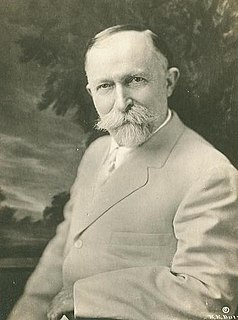A Quote by John Harvey Kellogg
To please men and to kill parasites are the only uses tobacco-its ultimate effects are the same in both cases.
Related Quotes
Nothing in Chomsky's account acknowledges the difference between intending to kill a child, because of the effect you hope to produce on its parents (we call this “terrorism”), and inadvertently killing a child in an attempt to capture or kill an avowed child murderer (we call this “collateral damage”). In both cases a child has died, and in both cases it is a tragedy. But the ethical status of the perpetrators, be they individuals or states, could not be more distinct For Chomsky, intentions do not seem to matter. Body count is all.
Tobacco, in its various forms, is one of the most mischievous of all drugs. There is perhaps no other drug which injures the body in so many ways and so universally as does tobacco. Some drugs offer a small degree of compensation for the evil effects which they produce; but tobacco has not a single redeeming feature and gives nothing in return.
I also like to look at the dynamic that takes place between religion and science because, in a way, both are asking the same questions: Who are we? Where do we come from? Why are we here? Where are we going? The methodologies are diametrically opposed, but their motivation is the same; the wellspring is the same in both cases.
Uncleanness is so much the attribute of officials that one could almost regard them as enormous parasites...In the same way the fathers in Kafka's strange families batten on their sons, lying on top of them like giant parasites. They not only prey upon their strength, but gnaw away at the sons' right to exist. The fathers punish, but they are at the same time the accusers. The sin of which they accuse their sons seems to be a kind of original sin.
Why does philosophy use concepts and why does faith use symbols if both try to express the same ultimate? The answer, of course, is that the relation to the ultimate is not the same in each case. The philosophical relation is in principle a detached description of the basic structure in which the ultimate manifests itself. The relation of faith is in principle an involved expression of concern about the meaning of the ultimate for the faithful.
In raising the price of commodities, the rise of wages operates in the same manner as simple interest does in the accumulation of debt. Our merchants and master manufacturers complain much of the bad effects of high wages in raising the price, and thereby lessening the sale of their goods, both at home and abroad. They say nothing concerning the bad effects of high profits; they are silent with regard to the pernicious effects of their own gains. They complain only of those of other people.
In an economy, an act, a habit, an institution, or a law, gives birth not only to an effect, but to a series of effects. Of these effects, the first only is immediate; it manifests itself simultaneously with its cause - it is seen. The others unfold in succession - they are not seen. Now this difference is enormous, for it is often true that when the immediate consequence is favorable, the ultimate consequences are fatal, and the converse.
We are just coming out of a 100-year stupor from being lied to by the tobacco industry for a century about the effects on young people, on cancer, these candy cigarettes that they promised had nothing to do with kids, Joe Camel that they promised was focused on the, you know, 55-year-old white male smoker, which we know is wrong. And we finally got out of that. Why in the world would we want to create the same thing, just not Big Tobacco this time, Big Marijuana?
Tobacco, divine, rare, superexcellent tobacco, which goes far beyond all the panaceas, potable gold, and philosophers stones, a sovereign remedy to all diseases but as it is commonly abused by most men, which take it as tinkers do ale, 'Tis a plague, a mischief, a violent purger of goods, lands, health; hellish, devilish and damned tobacco, the ruin and overthrow of body and soul.
The principles are important. First, the interest of the state or society counts for everything, that of the individual for nothing. Second, the only difference between men and women is one of physical function- one begets, the other bears children. Apart from that, they both can and should perform the same functions - though men on a whole, perform them better and should receive the same education to enable them to do so; for in this way society will get the best value from both.


































